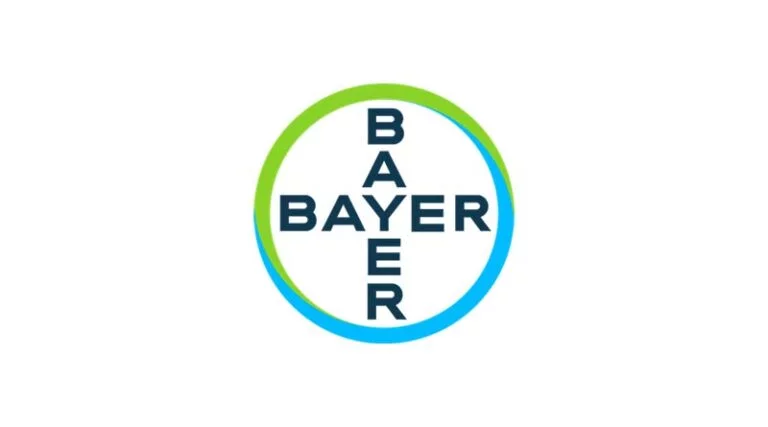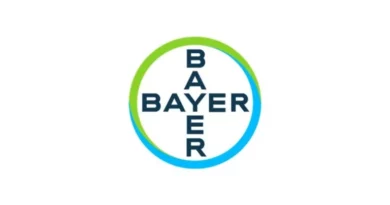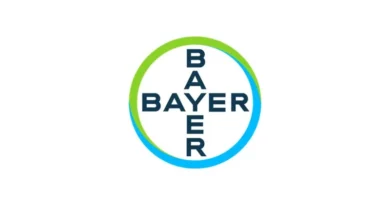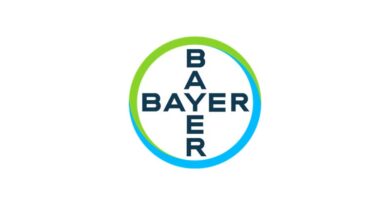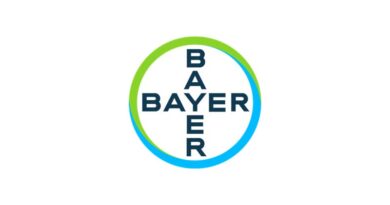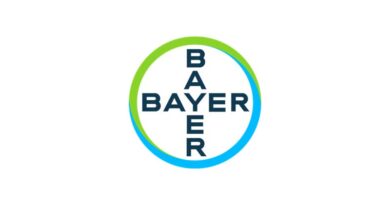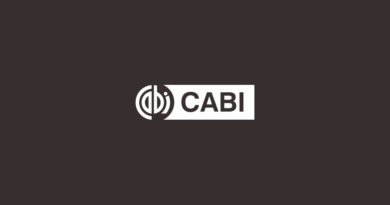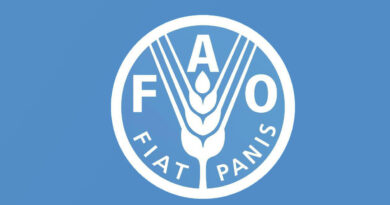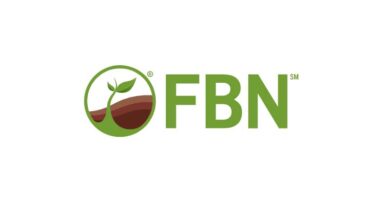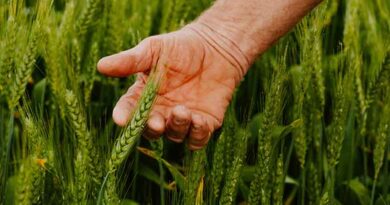Second quarter impacted by declines in glyphosate business
Group sales fall by 8.2 percent (Fx & portfolio adj.) to 11.044 billion euros / EBITDA before special items: 2.527 billion euros (minus 24.5 percent) / Crop Science business down significantly, mainly due to sharp decline in glyphosate volumes and prices / Stable sales at Pharmaceuticals (Fx & portfolio adj.), earnings below prior year / Consumer Health records higher sales (Fx & portfolio adj.), earnings up slightly / Core earnings per share at 1.22 euros (minus 36.8 percent) / Net income at minus 1.887 billion euros, weighed down by impairment losses of 2.301 billion euros / Free cash flow at minus 473 million euros / Group outlook for 2023 lowered on July 24
08 August 2023, Leverkusen: Bayer published detailed results for the second quarter of 2023 on Tuesday, after having already communicated key figures for the three-month period and lowering its outlook for full-year 2023 in a July 24 news release. The revised guidance was mainly due to a significant further decline in sales of glyphosate-based products at the Crop Science Division. Sales at Pharmaceuticals were stable on a currency- and portfolio-adjusted basis (Fx & portfolio adj.), while earnings were down year on year. Consumer Health registered higher sales (Fx & portfolio adj.) and also increased earnings.
Group sales declined by 8.2 percent (Fx & portfolio adj.) to 11.044 billion euros in the second quarter. There was a negative currency effect of 553 million euros (Q2 2022: positive currency effect of 915 million euros). EBITDA before special items declined by 24.5 percent to 2.527 billion euros. This figure included a negative currency effect of 120 million euros (Q2 2022: positive currency effect of 300 million euros). By contrast, the company registered income across all divisions totaling around 481 million euros due to a decrease in provisions for the Group-wide Short-Term Incentive program. EBIT came in at minus 956 million euros (Q2 2022: plus 169 million euros) after net special charges of 2.490 billion euros (Q2 2022: 2.111 billion euros) that primarily related to unscheduled impairment testing in the Crop Science Division. As a result, net income came in at minus 1.887 billion euros (Q2 2022: minus 298 million euros). Core earnings per share decreased by 36.8 percent to 1.22 euros.
Free cash flow amounted to minus 473 million euros (Q2 2022: plus 1.140 billion euros), primarily due to the decline in business at the Crop Science Division. At 39.620 billion euros, net financial debt as of June 30, 2023, was 9.8 percent higher than at the end of March 2023.
Crop Science sales without glyphosate at prior-year level (Fx & portfolio adj.)
Sales in the agricultural business (Crop Science) fell by 18.5 percent (Fx & portfolio adj.) to 4.924 billion euros, mainly driven by lower volumes and prices for glyphosate-based products. This effect particularly impacted business in North and Latin America as well as in Europe/Middle East/Africa, and resulted in a 45.6 percent decrease in sales (Fx & portfolio adj.) at Herbicides. Excluding the glyphosate business, Crop Science sales were level with the previous year (Fx & portfolio adj.), as higher prices were offset by lower volumes. Sales at Corn Seed & Traits rose by 10.6 percent (Fx & portfolio adj.), largely thanks to higher prices in all regions as well as increased acreages in North America. Business at Fungicides was level with the prior-year quarter (Fx & portfolio adj.). Sales at Soybean Seed & Traits were down 9.3 percent (Fx & portfolio adj.), mainly due to decreased acreages and a decline in license revenues in North America.
EBITDA before special items at Crop Science fell by 58.5 percent to 725 million euros, primarily due to the decline in sales of glyphosate-based products. Higher prices in the rest of the business and cost savings only partially compensated for this effect. Earnings were also diminished by a mainly inflation-related increase in the cost of goods sold and a negative currency effect of 96 million euros (Q2 2022: positive currency effect of 215 million euros).
Pharmaceuticals: new products deliver substantial growth
Sales of prescription medicines (Pharmaceuticals) came in at 4.557 billion euros, matching the prior-year level on a currency- and portfolio-adjusted basis. The division’s new products achieved significant gains: Sales of the cancer drug Nubeqa™ nearly doubled, while Kerendia™ for the treatment of chronic kidney disease associated with type 2 diabetes saw business expand more than threefold. In addition, the Radiology business continued to grow, mainly driven by gains for the CT Fluid Delivery and Ultravist™ product families. Sales of the ophthalmology drug Eylea™ also increased, with growth of 5.6 percent (Fx & portfolio adj.) driven by higher volumes in all regions and particularly in North America and Asia/Pacific. By contrast, the division recorded a decline in sales in China, partly due to tender procedures for Adalat™. On a global level, sales of the cardiovascular drug decreased by 26.1 percent (Fx & portfolio adj.). Business in China was also impacted by a decrease in demand for Aspirin™ Cardio, with global sales falling 29.3 percent (Fx & portfolio adj.). As expected, global sales of the oral anticoagulant Xarelto™ were down, with competitive pressure from generic products as well as lower prices, particularly in Asia/Pacific and Latin America, resulting in a decrease of 3.3 percent (Fx & portfolio adj.).
EBITDA before special items at Pharmaceuticals declined by 6.7 percent to 1.379 billion euros, largely due to higher R&D investments in cell and gene therapy and chemoproteomics technologies, as well as in projects in advanced clinical development. In addition, the prior-year quarter had received a significant boost from the sale of non-core businesses. There was a negative currency effect of 40 million euros (Q2 2022: positive currency effect of 41 million euros).
Consumer Health continues to grow
Sales of self-care products (Consumer Health) increased by 5.4 percent (Fx & portfolio adj.) to 1.466 billion euros compared to a strong prior-year quarter, with contributions from all regions. The division posted significant gains in the Dermatology business, with growth of 10.9 percent (Fx & portfolio adj.) driven partly by continued high demand for Bepanthen™, as well as in the Pain & Cardio category, where sales rose by 10.0 percent (Fx & portfolio adj.). In addition, sales of cough and cold products increased significantly amid a persistently strong cold season, while the allergy business expanded slightly despite a weaker allergy season due to weather-related factors. Overall, the Allergy & Cold category registered growth of 5.7 percent (Fx & portfolio adj.). The division continued to face some supply constraints in the second quarter, particularly in the Digestive Health category, where sales were level with the prior-year period (Fx & portfolio adj.). The supply situation is expected to improve in the second half of the year.
EBITDA before special items at Consumer Health increased by 1.5 percent to 335 million euros following a very strong prior-year quarter, driven by continuous operational productivity and price management measures. These efforts compensated for ongoing inflation-driven cost increases and investment in marketing innovative products. The division also recorded higher proceeds from the sale of minor, non-strategic brands. There was a negative currency effect of 31 million euros (Q2 2022: positive currency effect of 49 million euros).
Group outlook lowered on July 24
The Bayer Group lowered its outlook for full-year 2023 on July 24, mainly due to a significant further decline in sales of glyphosate-based products. When communicating its first quarter results, Bayer had already guided towards the lower end of the forecast it had previously issued. On a currency-adjusted basis (i.e. based on the average monthly exchange rates from 2022), Bayer now expects to generate sales of between 48.5 and 49.5 billion euros (initial forecast: 51 to 52 billion euros). This now corresponds to a decline of 2 to 3 percent on a currency- and portfolio-adjusted basis (initial forecast: increase of 2 to 3 percent). EBITDA before special items is now expected to come in at 11.3 billion to 11.8 billion euros on a currency-adjusted basis (initial forecast: 12.5 to 13.0 billion euros). The company now anticipates core earnings per share of 6.20 to 6.40 euros on a currency-adjusted basis (initial forecast: 7.20 to 7.40 euros). In addition, it now projects free cash flow of approximately zero euros (initial forecast: approximately 3.0 billion euros) and net financial debt of approximately 36 billion euros (initial forecast: 32 to 33 billion euros) on a currency-adjusted basis. Bayer now expects to take special items of around minus 3.5 billion euros (initial forecast: around minus 1.0 billion euros) in EBIT after adjusting for currency effects.
With respect to the divisions, the company now expects Crop Science sales to fall by around 5 percent year on year (initial forecast: increase by around 3 percent) and Pharmaceuticals sales to show a roughly 0 percent change against the prior-year level (initial forecast: increase by approximately 1 percent) after adjusting for currency and portfolio effects. The currency-adjusted EBITDA margin before special items is now projected to come in at around 21 percent at Crop Science (initial forecast: 25 to 26 percent) and approximately 28 percent at Pharmaceuticals (initial forecast: slightly above 29 percent). The forecast for Consumer Health remains unchanged, with sales growth of roughly 5 percent on a currency- and portfolio-adjusted basis, and a currency-adjusted EBITDA margin before special items of around 23 percent.
Also Read: UPL SAS partners with Olam Agri to advance sustainable sugarcane farming in India
(For Latest Agriculture News & Updates, follow Krishak Jagat on Google News)

